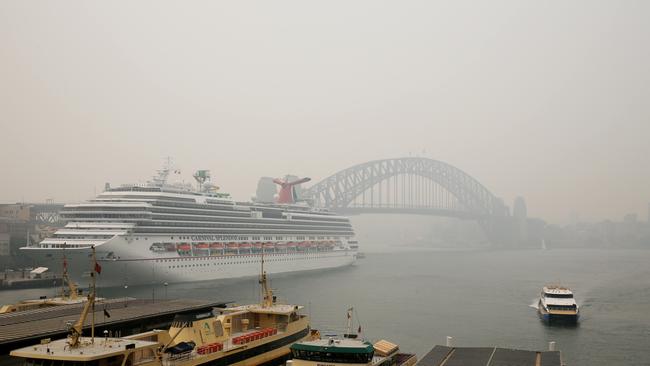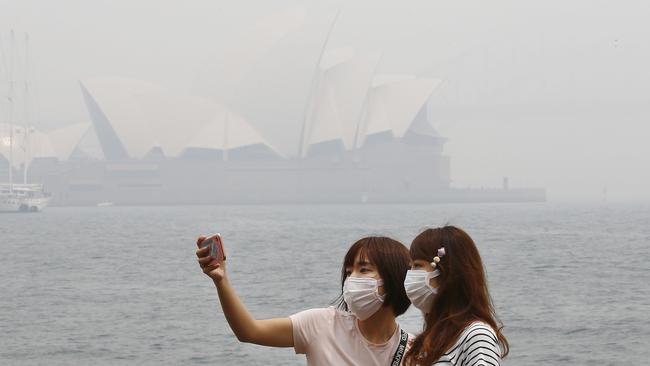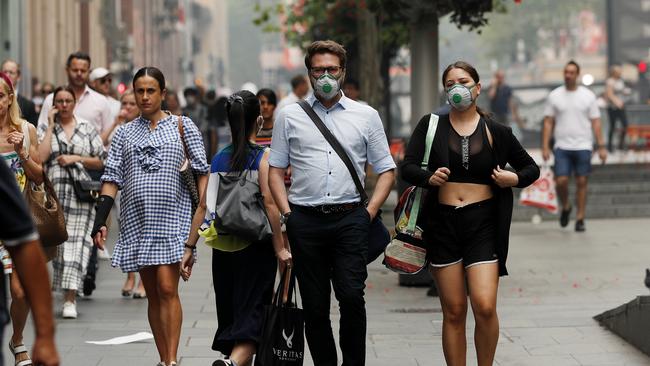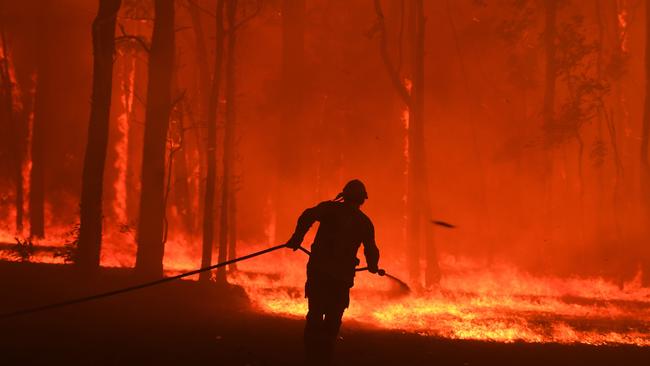NSW Bushfires: Survival guide as firefighters brace for horror day
As NSW braces for a horror Thursday with soaring temperatures and high winds, here’s how to keep safe if a bushfire is threatening your home. BUSHFIRE SURVIVAL GUIDE.

NSW
Don't miss out on the headlines from NSW. Followed categories will be added to My News.
As NSW braces for soaring temperatures and strong winds, firefighters surrounding Sydney are preparing for a worst-case scenario where the behemoth Gospers Mountain bushfire meets the Green Wattle Creek blaze in the Blue Mountains.
Together with the NSW Rural Fire Service, The Daily Telegraph has put together a survival guide for residents in the fire path and its surrounds:
The Rural Fire Service has conceded that they were not able to fully contain either the Gospers Mountain or Green Wattle Creek fire despite their best efforts this week.
After 2pm there will be a dry westerly wind shift that will push both the fires toward Sydney with temperatures still high in the mid 30s.
Conditions will start to ease around 8pm when a southerly shift begins. This will bring a drop in temperature and a rise in humidity.
TOXIC HAZE BLANKETED SYDNEY
A health expert is urged people in smoke-choked parts of Sydney to stay inside on Wednesday as a toxic haze the equivalent of smoking 20 cigarettes and counting worsens by the hour.
The level of toxic PM2.5 particles dragged in from the bushfires jumped threefold in just a few hours in Sydney’s southwest on Wednesday morning.
The particles, known to enter the bloodstream and cause a host of health problems including breathing difficulties and even cancer, crept quickly through the day – peaking at lunchtime.
The levels increased threefold in a matter of hours from 133 micrograms of particulates per cubic metre at 5am to 378 by 10am.


Breathing in the acrid haze at current levels does the same damage to your health as smoking nearly a pack of cigarettes, according to Dr Brian Oliver, an air quality expert at the University of Technology.
“Once levels reach 50 people should take notice. There is a significant health effect even if levels are non-hazardous and any day hazardous people should be careful and stay inside,” Dr Oliver said.
The levels of the insidious particles were highest in Sydney’s south west, the Central Tablelands and North West Slopes, all well beyond levels considered “hazardous” – like smoking 20-30 cigarettes.

The Bureau of Meteorology’s Elli Blandford said the plumes of smoke were dragged in today by a westerly buster travelling from the mega-fire razing the Blue Mountains.
“We have quite a lot of smoke in the atmosphere at the moment. We have some winds out there from north or north west dragging some of the smoke over parts of Sydney particularly in the south west.”

The haze comes just a day after health experts issued a stern warning for people to stay inside or wear P2 masks when air quality is very poor or hazardous given the risk of long-term health problems like cancer or asthma.
The haze will shroud most of Sydney tomorrow, according to the BOM, until a southerly buster flushes out some of the air in the afternoon before it returns on Saturday.
The NSW Department of Environment says the haze has been the longest and most widespread event ever recorded.
